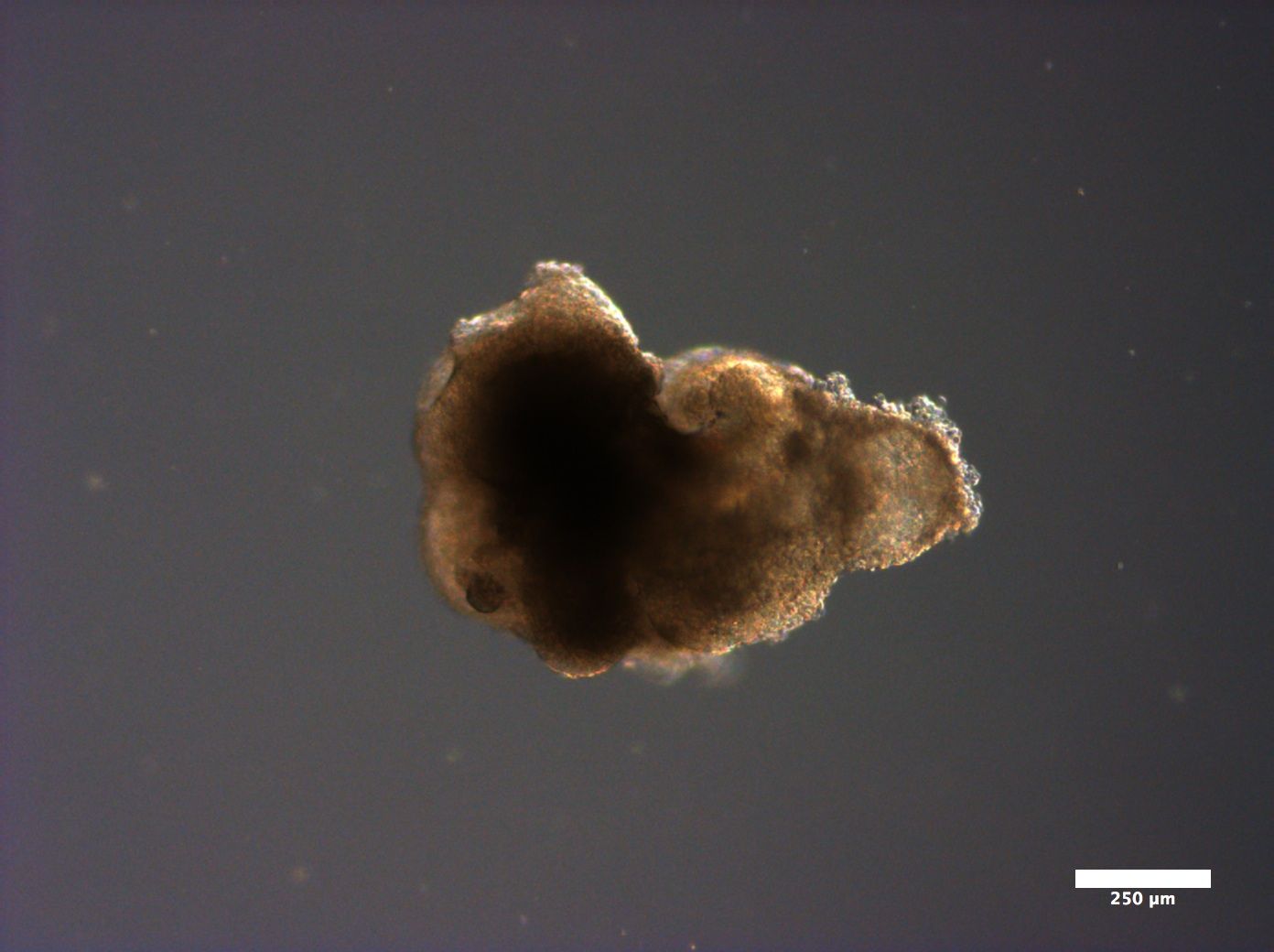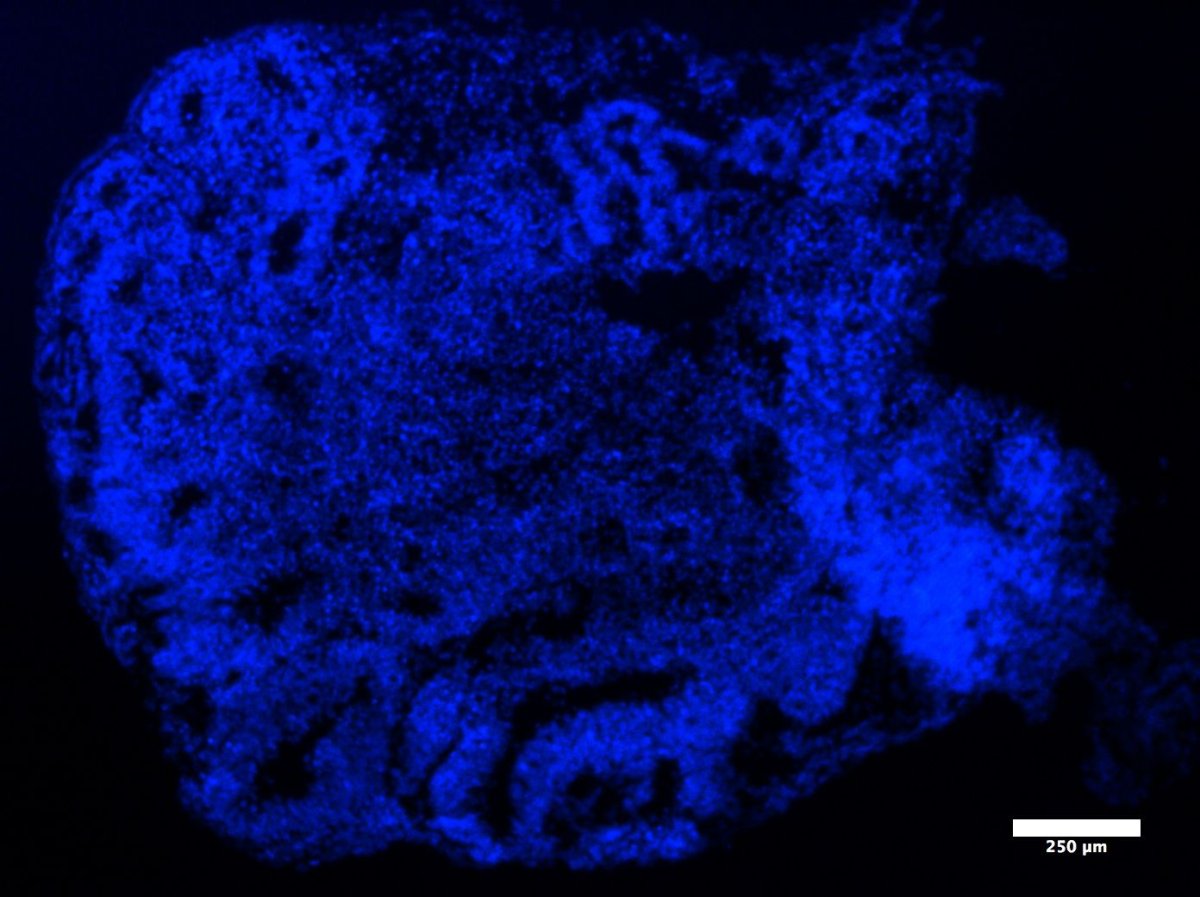
Zika causes a fetus's developing brain to essentially attack itself early in a pregnancy, according to remarkable new research into the mosquito-borne virus. And there might be a way to stop it.
As images of babies born with shrunken skulls continue to emerge from Zika-stricken countries, the research helps answer a persistent question of how, exactly, the virus arrests a baby's development in utero.
To answer it, a team of researchers led by Tariq Rana, a professor of pediatrics at UC San Diego School of Medicine, grew tiny, functional brains out of stem cells in petri dishes. Stem cells can be prompted to "self-assemble and make complex structures," including miniature versions of organs like brains or hearts, Rana explains. They grew the tiny brains until they reached the same level of complexity of a human fetus brain at around 9 weeks gestation. "It's really cool—they were actually firing neurons" and had "all the details," including the correct genetic material, of a fetus at the end of the first trimester of pregnancy. Then, the researchers infected their model brains with Zika virus.

What they found surprised them: The virus didn't attack the brain directly—it caused the immune system of the developing brain to destroy itself. More specifically, it prompted a molecule called TLR3, which is normally responsible for destroying invading viruses, to go into hyper-drive; rather than attacking the virus, the TLR3 molecules turned on the neural stem cells, triggering them to commit "cell suicide," Rana says. That means if a mother is infected with Zika in roughly the first trimester of pregnancy, while the fetus is still converting stem cells into brain cells, the virus has the potential to prompt those cells to destroy themselves before they can contribute to brain growth.
"The first week to 10 weeks is the period where all those structures are forming. [With Zika infection,] the stem cells in the region of the brain starts to die," Rana says. In the lab, the tiny brains in the petri dish were visually shrinking each day as the brain continued to attack itself.
But to double-check that hyperactive TLR3s were actually the cause of Zika-induced microcephaly, and not just a symptom of the disease, the researcher added a TLR3 inhibitor chemical to the infected brains. The shrinkage significantly slowed. There was still cell damage, and the brains did not begin to develop normally or "bounce back" all the way, but there was no question that some of the destruction had ceased.
Rana hopes that the next step will be to test TLR3 inhibitors—which are already used to treat other autoimmune diseases—on women infected with Zika in their first trimester, to try to reduce some of the damage to their babies. "We really want to go forward with that. I have no idea how safe this is at this stage. There are some drugs already approved by the [U.S. Food and Drug Administration] for other things. To help people and go forward quickly, we'd want to use already-approved drugs," he says.
He adds that while they've isolated one way that Zika wreaks havoc on the system, it's "unlikely that it would activate only one pathway." There are probably many more genes in the developing fetus that are affected by the disease, and he hopes researchers will start growing petri-dish brains of their own to find out what those are.
Uncommon Knowledge
Newsweek is committed to challenging conventional wisdom and finding connections in the search for common ground.
Newsweek is committed to challenging conventional wisdom and finding connections in the search for common ground.
About the writer
Zoë is a senior writer at Newsweek. She covers science, the environment, and human health. She has written for a ... Read more
To read how Newsweek uses AI as a newsroom tool, Click here.








